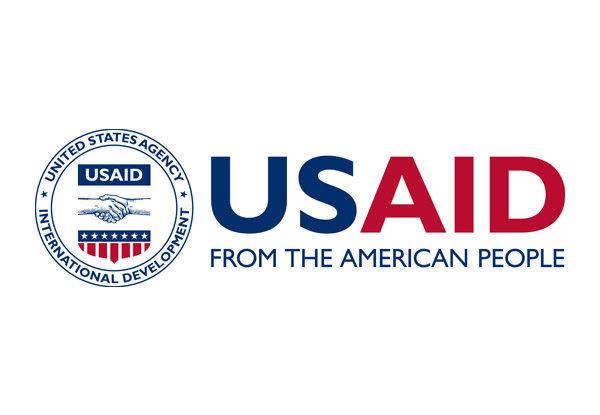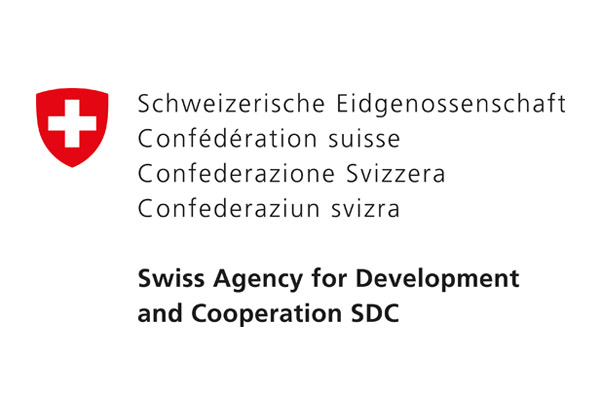Legal
Whistleblowing policy
Approved 1 August 2023.
This policy is based on UK legislation, the principles of which are applied in all locations where GNDR operates, unless local legislation gives greater provision or protection. This policy does not form a part of your contract of employment.
1. Introduction
GNDR is committed to the highest standards of openness, probity and accountability. An important aspect of accountability and transparency is a mechanism to enable employees and other GNDR stakeholders to voice concerns in a responsible and effective manner.
It is important to GNDR that any fraud, misconduct or wrongdoing by those working for the organisation is reported and properly dealt with. We therefore encourage any individual to raise any concerns that they may have about the conduct of others in GNDR or the way in which GNDR is run. This policy sets out the way in which individuals may raise any concerns that they have and how those concerns will be dealt with.
The UK Public Interest Disclosure Act 1998, gives legal protection to employees against being dismissed or penalised by their employers as a result of publicly disclosing certain serious concerns. GNDR has endorsed the provisions set out below so as to ensure that no individual will be disadvantaged by raising legitimate concerns.
2. What is a whistleblower?
A whistleblower is someone who reports certain types of wrongdoing in the public interest. At work, this will usually be something an employee has seen at work.
The disclosure of this wrongdoing must be in the public interest. Individuals will not be treated unfairly or lose their job because they ‘blow the whistle’. Individuals can raise their concerns at any time about an incident that happened in the past, is happening now, or which they believe will happen in the near future.
3. Scope
This policy applies to all employees of the organisation. Other individuals performing functions in relation to the organisation, such as contractors, volunteers and suppliers are also encouraged to use it.
This policy is designed to enable individuals to raise concerns internally and at a high level, and to disclose information which the individual believes shows malpractice or impropriety.
This policy is intended to cover concerns which are in the public interest and may at least initially be investigated separately but might then lead to the invocation of other procedures e.g. disciplinary. The law provides protection for workers who raise legitimate concerns about specified matters. These are called “qualifying disclosures”. A qualifying disclosure is one made in the public interest by a worker who has a reasonable belief that:
- A criminal offence (such as financial malpractice or impropriety or fraud)
- Improper conduct or unethical behaviour
- A miscarriage of justice
- An act creating risk to health and safety
- An act causing damage to the environment
- A breach of any other legal obligation
- Concealment of any of the above
It is not necessary for the individual to have proof that such an act is being, has been, or is likely to be, committed – a reasonable belief is sufficient. The worker has no responsibility for investigating the matter – it is the responsibility of GNDR to ensure that an investigation takes place.
An individual who makes such a protected disclosure has the right not to be dismissed, subjected to any other detriment, or victimised, because he/she has made a disclosure.
The organisation encourages individuals to raise their concerns under this procedure in the first instance. If an individual is not sure whether or not to raise a concern, he/she should discuss the issue with his/her line manager or the HR department.
4. Concerns that are not whistleblowing matters
This policy is intended to assist individuals who believe they have discovered malpractice or impropriety. It is not designed to question financial or business decisions taken by GNDR.
Employees’ grievances, such as bullying, harassment or discrimination, are not covered by this policy, unless the matter is in the public interest. Employees should instead use the GNDR complaints policy and grievance procedure to raise concerns about matters that affect them within the workplace.
GNDR expects its staff to use the whistleblowing procedure rather than airing their concerns outside of GNDR.
5. Safeguards
5.1. Protection
This policy offers protection to GNDR staff who disclose such concerns, provided the disclosure is made:
- In good faith
- In the reasonable belief of the individual making the disclosure that it tends to show malpractice or impropriety, and if they make the disclosure to an appropriate person (see below). It is important to note that no protection from internal disciplinary procedures is offered to those who choose not to use the procedure. In an extreme case, malicious or wild allegations could give rise to legal action on the part of the persons complained about.
5.2. Confidentiality and anonymous allegations
GNDR will treat all such disclosures in a confidential and sensitive manner. The identity of the individual making the disclosure may be kept confidential so long as it does not hinder or frustrate any investigation. However, the investigation process may reveal the source of the information and the employee making the disclosure may need to provide a statement as part of the evidence required.
This policy encourages staff to put their name to any disclosures they make. Concerns expressed anonymously are much less credible and difficult to investigate, but they may be considered at the discretion of GNDR. In exercising this discretion, the factors to be taken into account will include:
- The seriousness of the issues raised
- The credibility of the concern
- The likelihood of confirming the allegation from attributable sources
It’s important to know, anonymous claims are very difficult to investigate and follow up. GNDR encourages claimants to identify themselves and provide as much information as possible. GNDR will protect the identity of the claimant as much as is practically possible. Where a claimant’s identity is likely to be disclosed in order to ensure action is taken against an alleged individual, the claimant will be informed in advance.
HR is responsible for documenting complaints and cases. Personal data and/or information relating to an individual’s identity will be removed as much as possible, when cases are documented.
5.3. Untrue allegations
If staff raise a concern in good faith, which is not confirmed by subsequent investigation, no action will be taken against that employee. In making a disclosure, the individual should exercise due care to ensure the accuracy of the information. If, however, an employee makes malicious or vexatious allegations, and particularly if he or she persists with making them, disciplinary action may be taken against that employee.
6. Who to raise a concern to
Staff can either tell their line manager, or send an email to concern@gndr.org to report a concern. This email account is monitored by HR. On receipt of a concern, the staff who receives and takes note of the concern, must pass this information as soon as is reasonably possible to the Executive Director, who will appoint an investigating officer.
If the concern is against the Executive Director, or is in any way related to the actions of the Executive Director, then the concern must be raised with the Chair of Trustees by sending an email to trustees@gndr.org, who will appoint an investigating officer.
The Executive Director, or Chair of Trustees, will listen to the individual’s concern and decide if any action is needed. Further information may be requested.
If there is evidence of criminal activity, then the police will be informed. GNDR will ensure that any internal investigation does not hinder a formal police investigation.
7. Timescales
Due to the varied nature of these sorts of concerns, which may involve internal investigators and/or the police, it is not possible to lay down precise timescales for such investigations. The investigating officer should ensure that the investigations are undertaken as quickly as possible without affecting the quality and depth of those investigations.
The investigating officer, should, as soon as practically possible, send a written acknowledgement of the concern to the individual and thereafter report back to him/her in writing the outcome of the investigation and any action that is proposed. If the investigation is a prolonged one, the investigating officer should keep the individual who raised the concern informed, in writing, as to the progress of the investigation and as to when it is likely to be concluded.
All responses to the individual who raised the concern should be in writing and sent by email or letter to his/her home address.
8. Investigation procedure
The investigating officer should follow these steps:
- Full details and clarifications of the concern should be obtained
- The allegations should be fully investigated by the investigating officer with the assistance where appropriate, of other individuals such as Senior Leadership Team, Executive Director, Treasurer or other Trustees, GNDR auditors, Chair of the Global Board, or the police.
- A judgement regarding the concern and its validity will be made by the investigating officer. This judgement will be detailed in a written report containing the findings of the investigations and reasons for the judgement. The report will be passed to the Treasurer or Chair of the Global Board as appropriate.
- The Finance Trustee or Chair of the Global Board will decide what action to take. If the concern is shown to be justified, they will invoke the disciplinary policy or other appropriate GNDR procedures
- The individual who raised the concern should be kept informed of the progress of the investigations and, if appropriate, of the final outcome
- If appropriate, a copy of the outcomes will be passed to GNDR auditors to enable a review of the procedures
If the individual is not satisfied that the concern is being properly dealt with by the investigating officer, they have the right to raise it in confidence with the Executive Director, Chair of the Trustees, or the Finance Trustee or Chair of the Global Board.
If the investigation finds the allegations unsubstantiated and all internal procedures have been exhausted, but the individual is not satisfied with the outcome of the investigation, he/she should report the matter to the proper authority. The legislation sets out a number of bodies to which qualifying disclosures may be made. These include:
- HM Revenue & Customs
- The Financial Conduct Authority (formerly the Financial Services Authority)
- The Competition and Markets Authority
- The Health and Safety Executive
- The Environment Agency
- The Independent Office for Police Conduct
- The Serious Fraud Office
9. Data protection
When an individual makes a disclosure, the organisation will process any personal data collected in accordance with the GNDR Data Protection Policy. Data collected from the point at which the individual makes the disclosure is held securely and accessed by, and disclosed to, individuals only for the purposes of dealing with the disclosure.
Contact us
If you’d like to get in touch with us, or have any questions about our work please contact us.
Contact us


